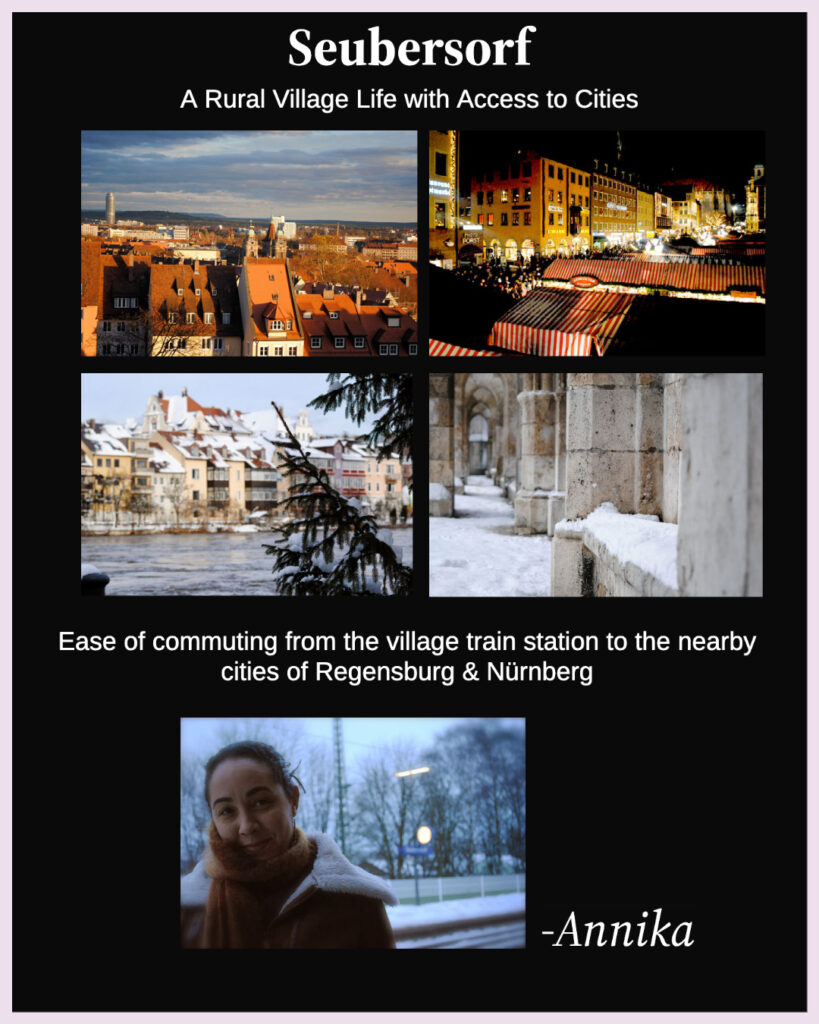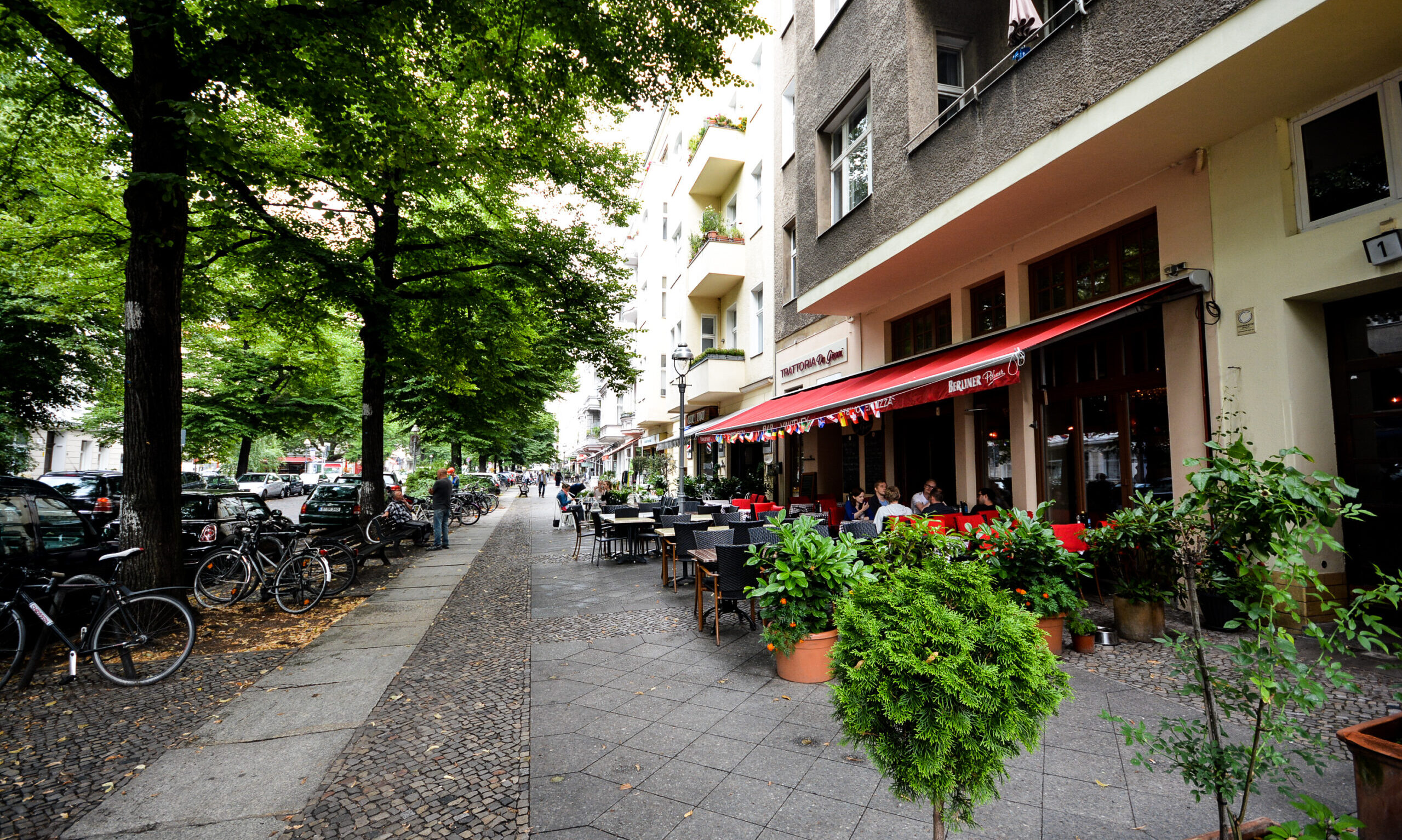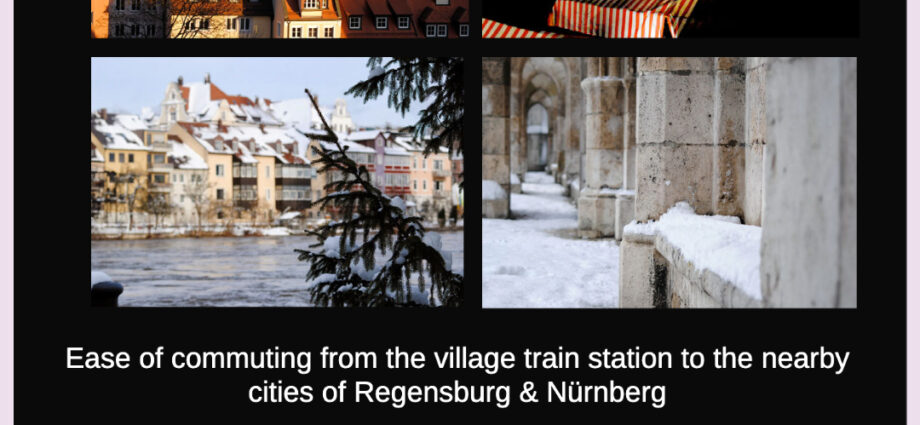SEUBERSDORF: A RURAL VILLAGE LIFE WITH ACCESS TO CITIES
I have piles of journals with ‘notes from the field’ in diverse places I have lived over the past 20+ years, beginning with entries from my time in Seattle where my interest in urbanism was lit in 2001.
The notes span cities I’ve lived in across 5 countries (with some travel reflections mixed in too) and are the basis of what for years has been imagined as a book with each chapter for a different city inhabited.
When I started Pedestrian Space a little over 3 years ago, many of these memories of different places, mobilities and lifestyles rose like puzzle pieces ready to be fit. I could see how walkability was a central value in my life long before I even knew the term.
My husband and I moved to Bavaria in 2010. He was on Active Duty and we chose to live off base (actually there was no space on base but even if there was, we wanted to live off).
The home we found was in the village of Seubersdorf, in the municipality of Seubersdorf in der Oberpfalz, the population of which is a bit over 5,000 but the village proper far less.
We loved the house we rented and were excited to settle into this new chapter of life in the Bavarian hinterland.
Little did we know when we got the keys to our place (we found out during our 1st exploratory weeks), that there was a train station in the village.
We immediately began using it for day trips. The pretty and relaxed city of Regensburg was 40 minutes by train while the bustling, urban vibe of Nürnberg was 45 minutes to an hour by train.
It was late Autumn when we moved to Bavaria, so we had the rich sensory mix of the season to accompany our first explorations of the region. Our 1st Christmas Market memories in Nürnberg feature Glühwein and meandering around market stalls as prominently as they feature our memory of taking the train there & home.
With time I would come to find out that many of the villages of the surrounding area did not have train stations. I would find that many fellow military wives were in fact experiencing transit exclusion -a term I didn’t even know at the time but this very year, here in Poland, gave a speech on as relates to social exclusion.
My husband and I had a two-car house, but I increasingly didn’t drive most days. I went from working on base (only reachable by driving) to working as a freelance photographer. I specialized in photography for local small businesses and a lot of family portraiture (for military and many local families). This shift to freelancing was also a mobility. shift, in which I was able to largely rely on the train to get to my photo assignments (being a rural area, there were some times clients chose quite scenic, but somewhat remote places for their sessions).
Both my husband and I now reflect on this chapter with fondness- the ability to enjoy a rural village lifestyle with convenient train access to nearby cities.
-Annika
#psychogeography


